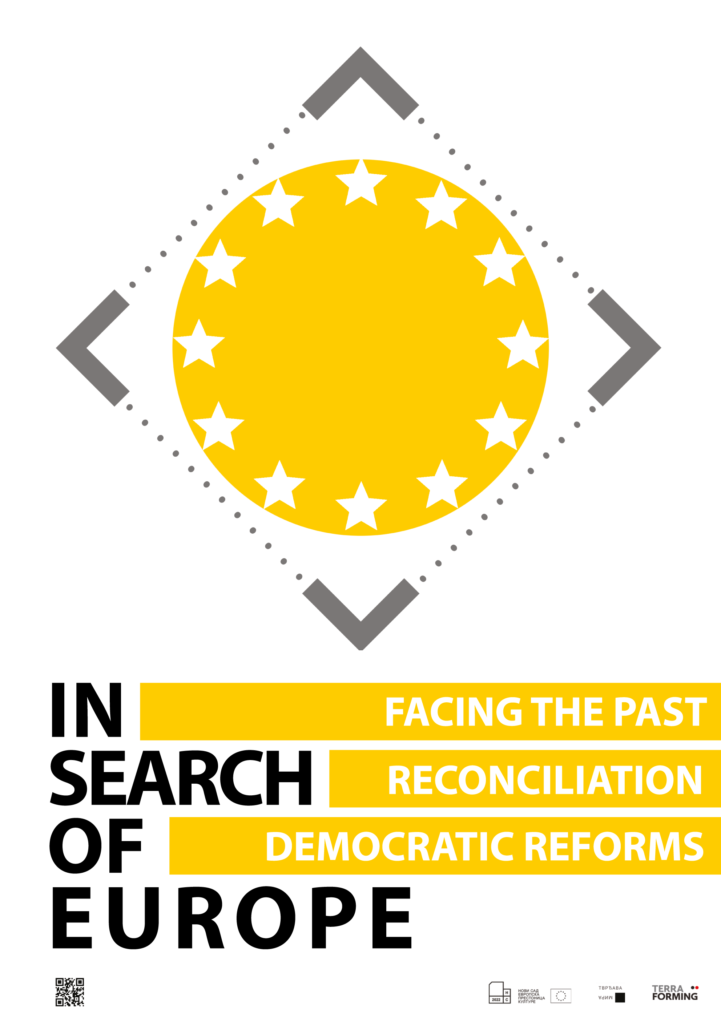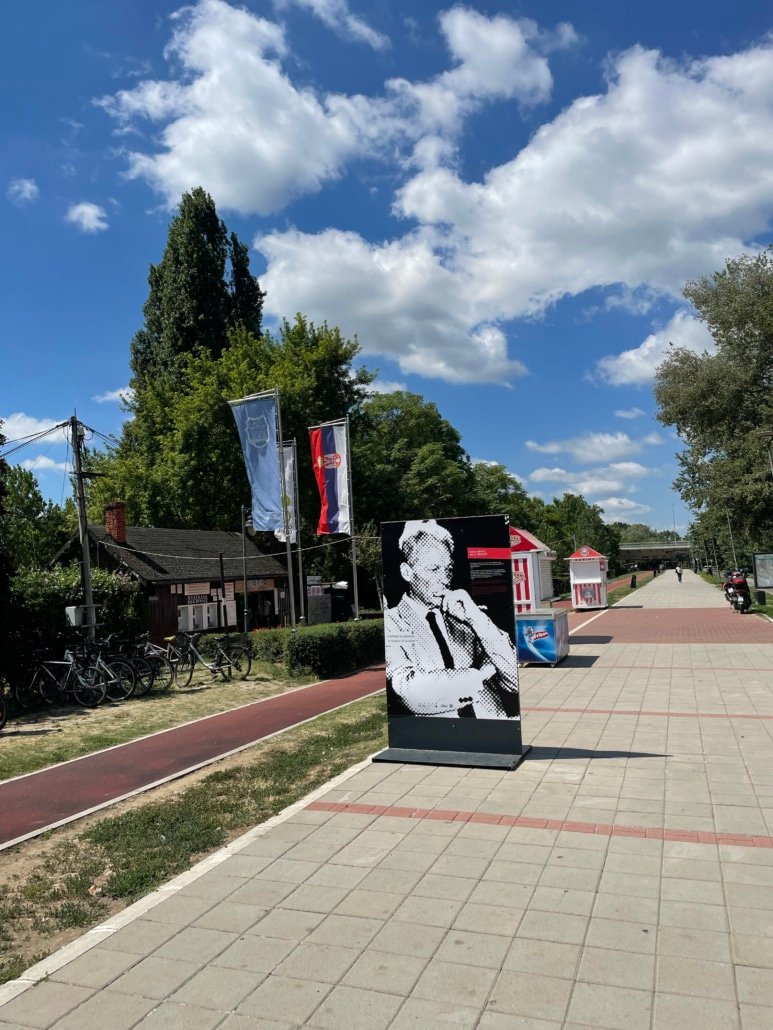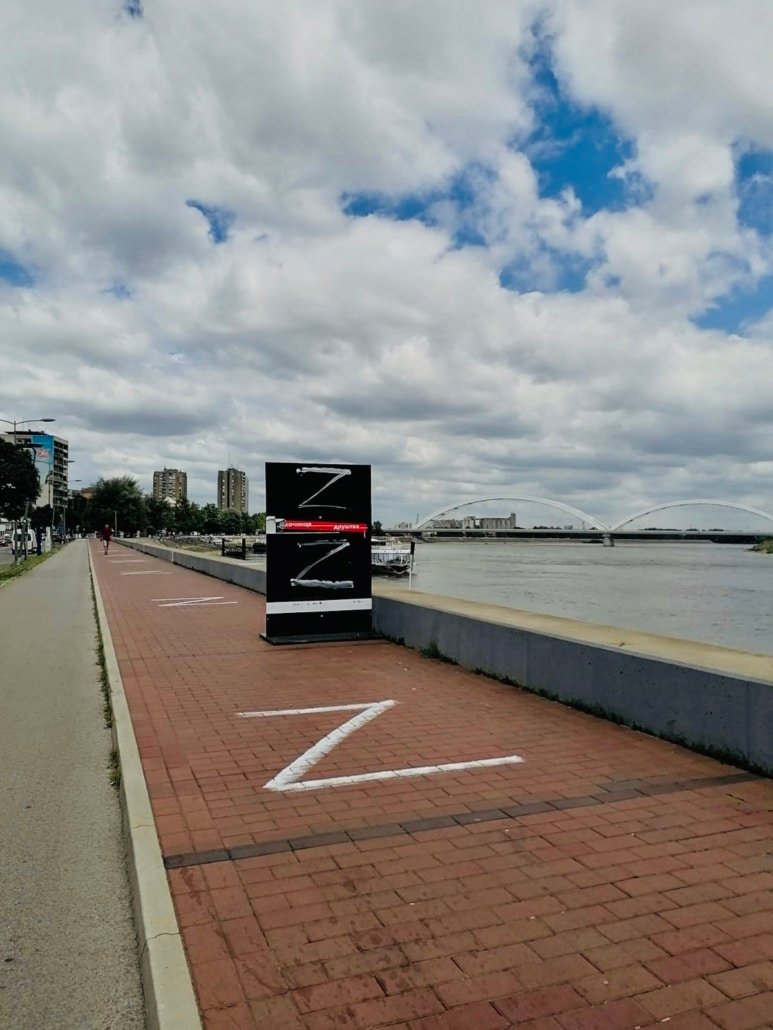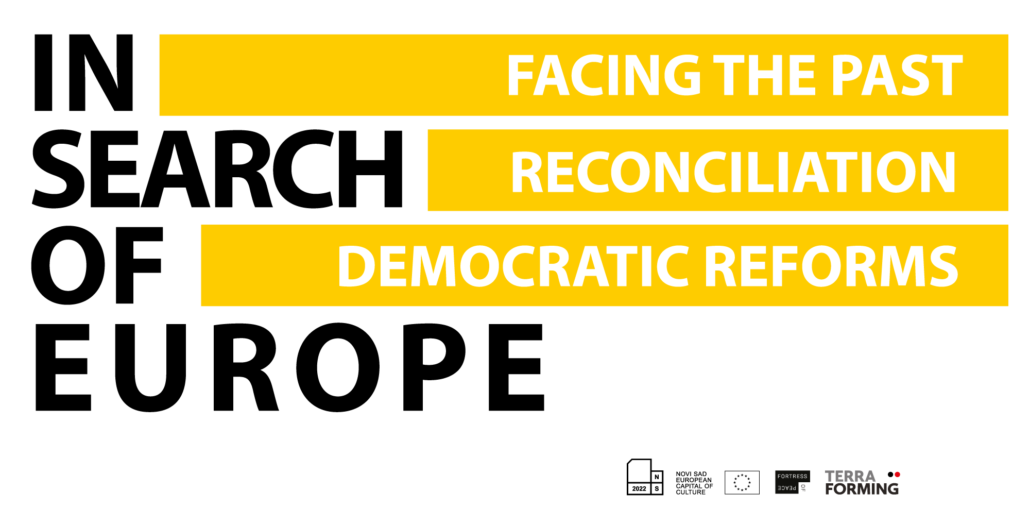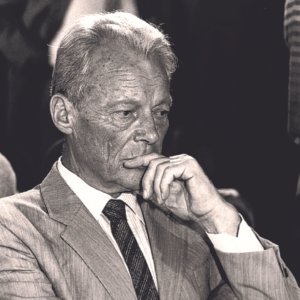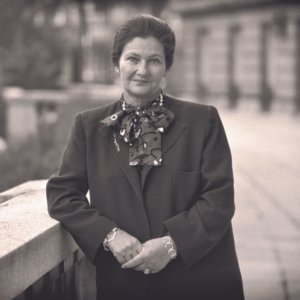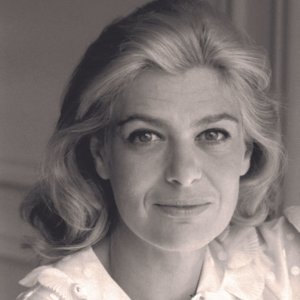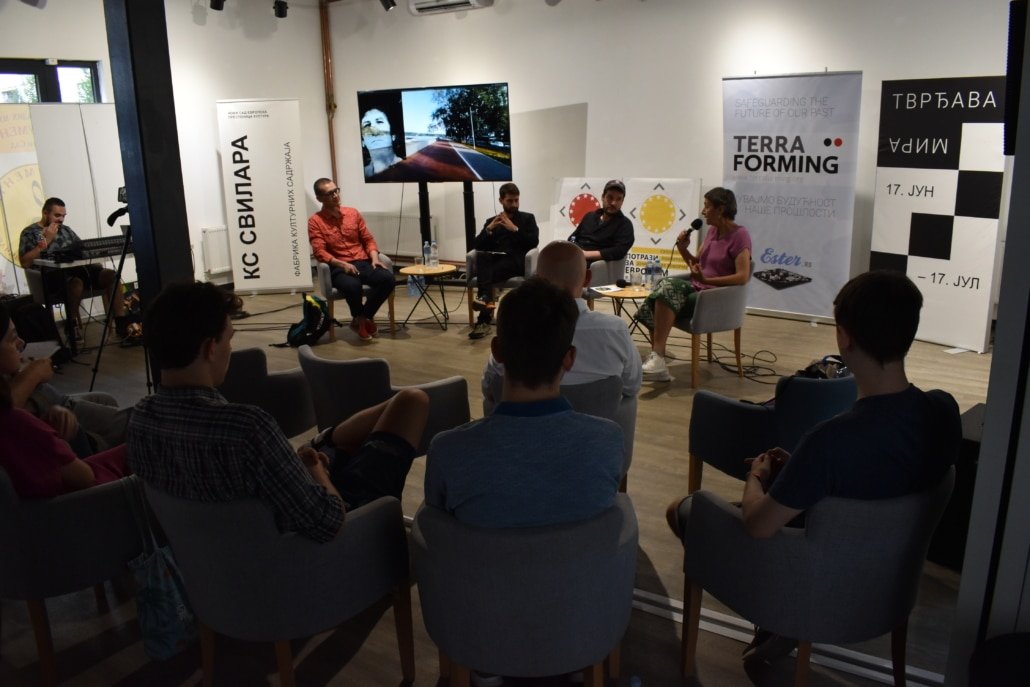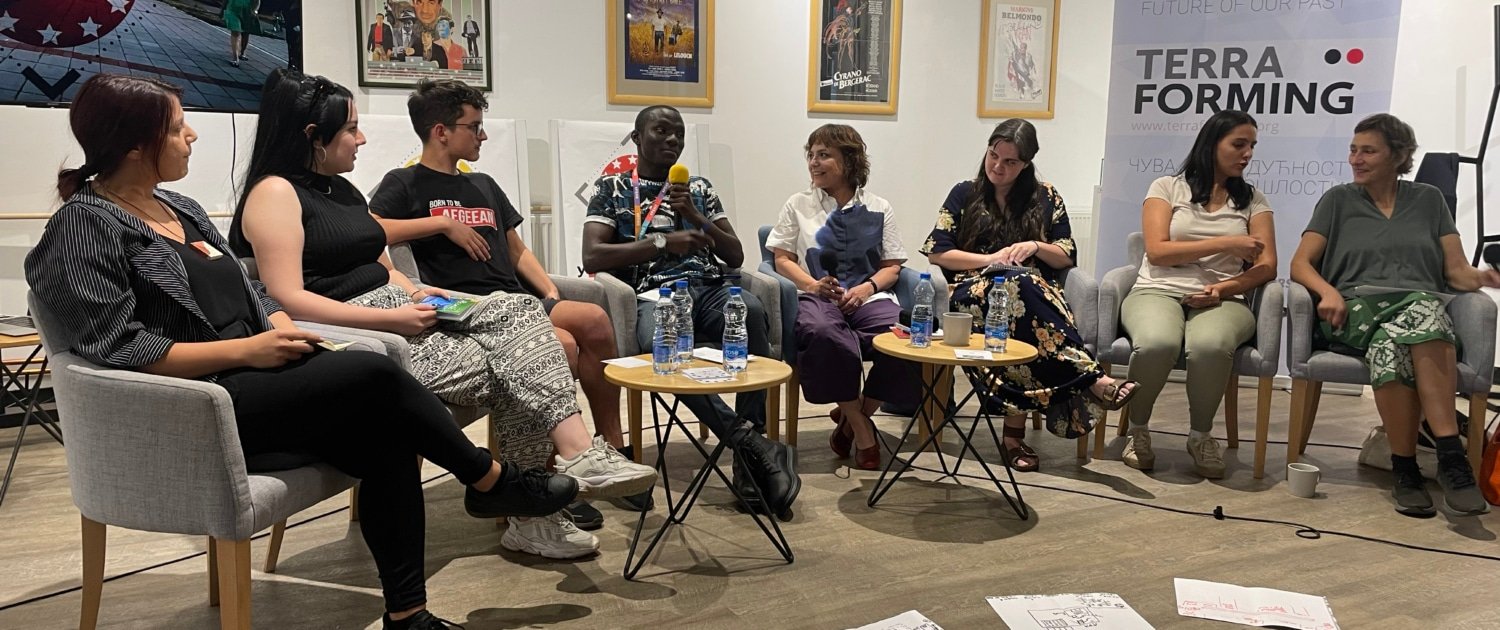A group of young volunteers in discussion with Petra Ardai and Nevena Bajalica, curators and workshop leaders, next to the exhibition panel with Danilo Kiš, a world-renowned Serbian-Jewish author.
During the first night after opening, somebody drew neo-nazi and antisemitic signs on that panel. A couple of days later, somebody else (we don’t know who) patched the desecrated space on the panel with a piece of paper with the word “peace” written on it. Other anonymous bypassers joined in countering the antisemitic incident by writing “peace” on the paper. After a couple of days, the paper was filled with the word “peace” written in different languages. Neonazi and nationalists continued damaging and violating our exhibition panels and spaces around them, but it only made this spontaneous and simple act of upstandership even more appreciated and important.


